As a child growing up in New Zealand and running around fields barefoot, bees used to scare me – only because they stung when I accidentally trod on one. Little did I know that these sweet little Anthophila were just going about their daily business of pollinating, ensuring that our already fragile ecosystem survived, and they had absolutely no desire to hurt me. Looking back now, I wish I had been better informed. Years later, a friend of mine announced that he was running a marathon for bees. His passion was contagious, and ever since, I have wanted to raise awareness about the importance of these tiny ecowarriors.
Recent studies have shown that bee populations around the world continue to decline at an alarming rate. According to the latest statistics, more than 25 per cent of the world’s bee species are at risk of extinction, and many more are under stress. I don’t think anyone quite comprehends the magnitude of what might happen if bees cease to exist. The loss of biodiversity is a trend that is garnering much concern. As organisms have evolved into mutualistic and synergistic relationships, the loss of just one species can have a catastrophic environmental impact. Since much of the pollination is facilitated by bees, the reported colony collapse disorder has many worried about the widespread agricultural fallout and the consequential deleterious impact on human food stocks.
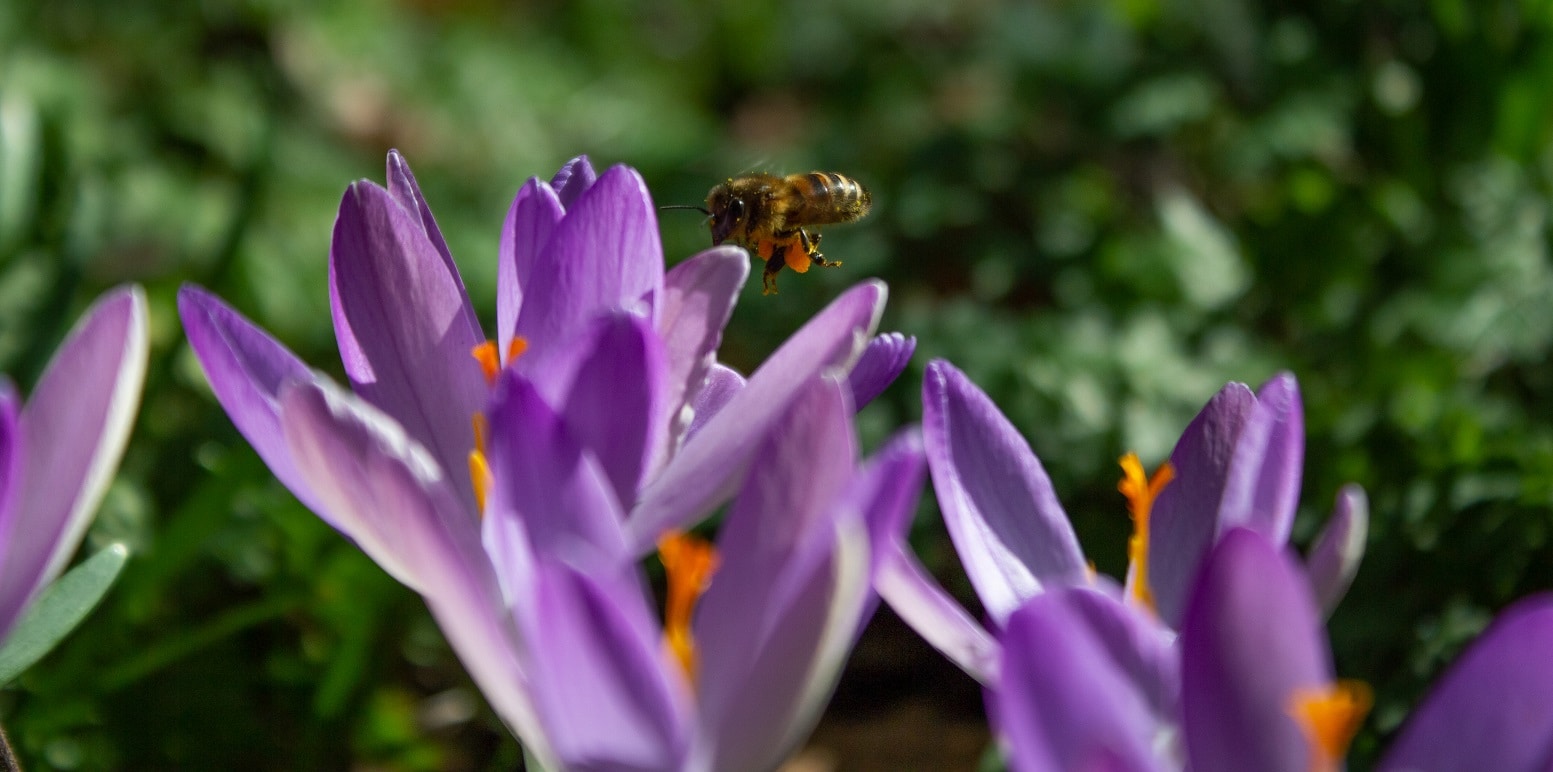
According to the latest statistics, more than 25 percent of the world’s bee species are at risk of extinction, and many more are under stress.
Despite the potential harm to bees, the government’s controversial decision to continue to allow the farming use of harmful neonicotinoids (a widely used class of insecticides) has been a subject of much contention, with many arguing that it prioritises the interests of the agricultural industry over the environment. According to several studies, these pesticides lead bees to hyperexcitation and death – this factor alone is purported to have contributed to a decline of up to 30 per cent in bee populations in some regions. While defenders of neonicotinoids argue that they are necessary to keep crops safe from pests, there are alternative methods available that don’t put bees at risk and are healthier for our food supply chain.
During my research on the plight of bees, I realised that many celebrities are strongly committed to contributing to the survival of bees. Scarlett Johansson, Morgan Freeman and Leonardo DiCaprio are just a few of the Hollywood stars that have gone into beekeeping.
To better understand how one gets “hooked” onto the ancient practice of owning and breeding bees, I spoke to the delightful and passionate Nicola Reed, whose personal journey began when her husband James Reed (Chairman and CEO of recruitment platform Reed) was given a hive for his birthday. While fully supporting the initiative, he decided that it wasn’t for him, so Nicola stepped in and took control. She went on a beekeeping course in the Cotswolds, and when the beekeeper opened the hives, most people backed away intimidated. Nicola, on the other hand, felt the urge to leap in with them, as their hardworking, harmonious existence resonated with her.
“I see myself as a privileged custodian rather than a beekeeper.”
– Nicola Reed
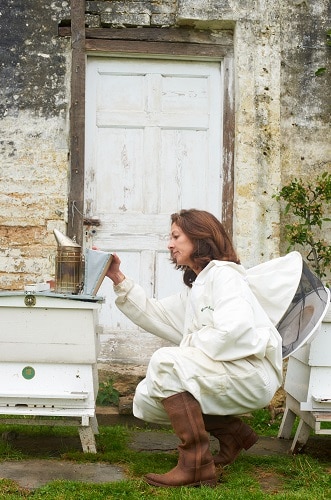
Partnering with entrepreneur Matthew Brauer, in 2018 they created Beeble, an award-winning brand of honey-infused whiskey, rum and vodka; the honey is ethically harvested from Nicola’s 130 Wiltshire hives. Today the beverages are available in more than 2,000 retailers across the UK. From all the honey-based drinks I have tasted, hand on my heart I can say Beeble’s are the best. The sediment in the bottom of the bottle is proof that it contains real honey, not just the usual essence. I have been reliably informed that the cocktail du jour for this summer is prosecco with a splash or two of Beeble honey rum.
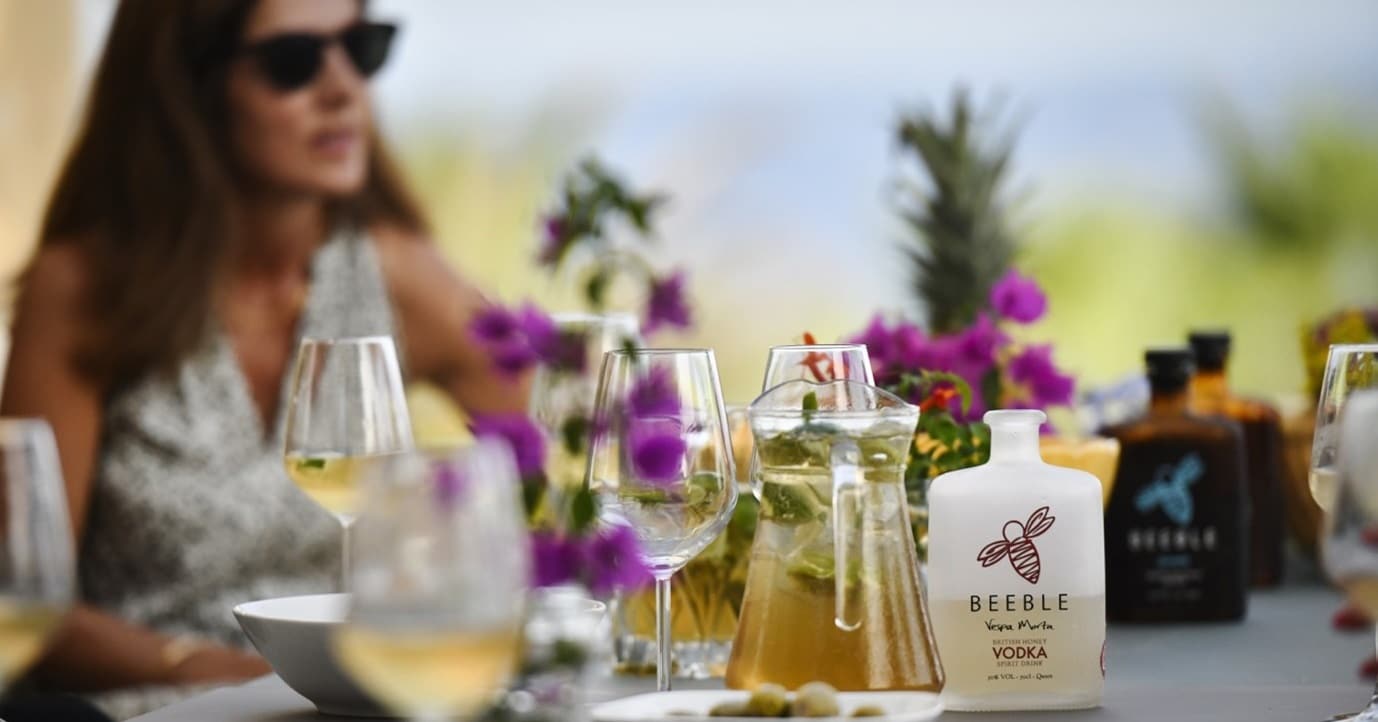
Beeble produces award-winning honey-infused whiskey, rum and vodka.
Nicola recently completed a fundraising round, and part of the money is going towards a beekeeping school to encourage more people to take up this worthwhile vocation. When I asked her how someone like me, who lives in an apartment building in the middle of London, could help, her response was, “Raise awareness and encourage others with outside space to install hives, even if they don’t plan to harvest the honey. Alternatively, create window boxes or garden planters filled with bee-friendly foliage.” Bees are attracted to flowers with bright colours and prefer a single layer of petals that provide easy access to nectar and pollen. Other bees- and household-friendly favourites are mint, rosemary, thyme and lavender.
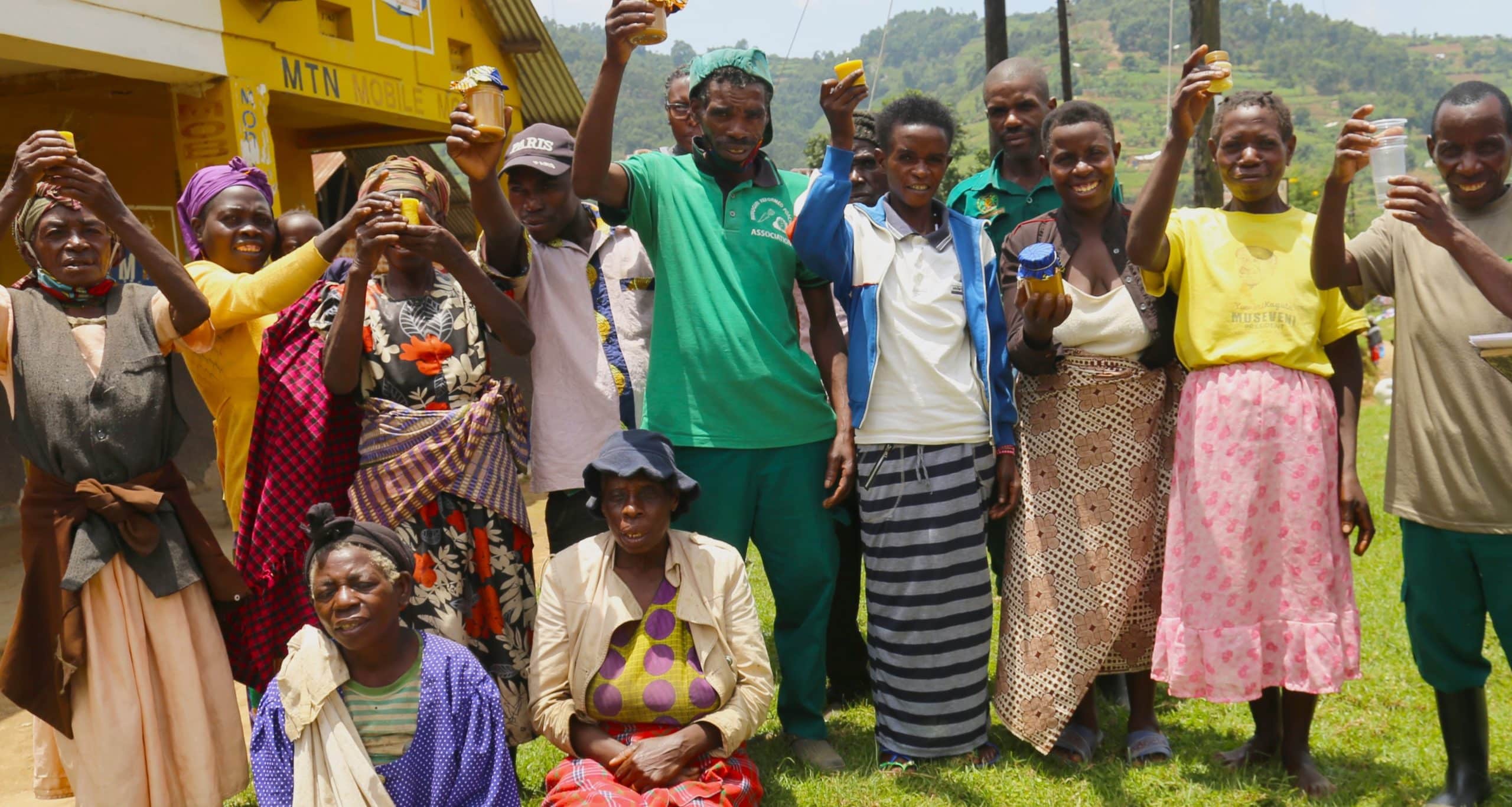
“Beekeeping helps people create an income, and at the same time gives them an incentive to look after their environment.” – Nicola Bradbear.
Nicola also introduced me to the wonderful organisation Bees for Development, an international charity that promotes sustainable beekeeping practices in developing countries, including Ethiopia, Ghana and Uganda. Established in 1993 by Nicola Bradbear, its aim is to raise awareness, combat poverty by generating income, improve food security and benefit biodiversity. Bradbear and her team work with local partners who share their objectives and possess the right level of expertise, thus delivering practical community-based projects to change people’s lives. “Beekeeping helps people create an income, and at the same time gives them the incentive to look after their environment,” Bradbear explains. Honey and beeswax harvested sustainably from unpolluted environments in developing countries are of the finest quality and in high demand around the world. However, for the communities that produce them, finding the best markets and selling their produce for profit is not easy. Bees for Development empowers them with access to materials, skills, knowledge, information and connections.
Demonstrating the medicinal and healing properties of beeswax and bee by-products is charismatic entrepreneur Paula Warwick, founder of Batch #001. Warwick’s inspiration came from the desire to help her daughters, both of whom had been diagnosed with severe eczema and allergies. “I wanted to create a range of completely natural and organic products that could be used to soothe and repair their inflamed and irritated skin,” she said.
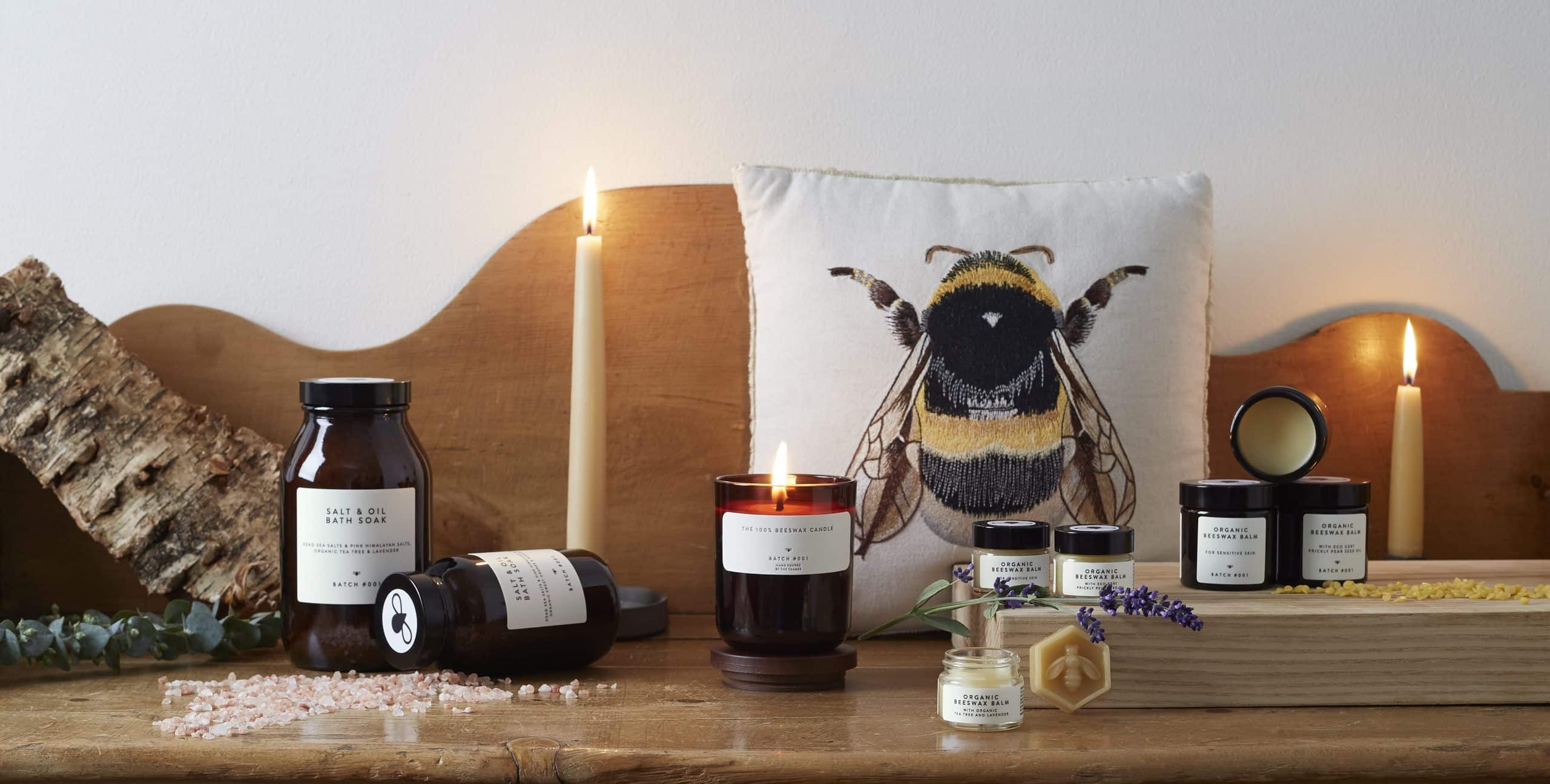
The extensive range of products by Batch #001 are 100 percent ethically sourced, cruelty-free and made using all-natural and organic ingredients.
Their extensive medical treatments included applying moisturisers up to 10 times a day. But the prescription medications only seemed to exacerbate the problem and often resulted in blisters. While reading the long list of synthetic chemicals, preservatives, sulphates and parabens contained in these products, Warwick wanted to find a natural alternative to ease flare-ups and lock in moisture. Inspired by a beekeeping friend, she started experimenting with beeswax. “The more I learned about its natural antibacterial, antimicrobial and antifungal properties, the more convinced I was that it would be fantastic to use in skincare for my daughters.” And so Batch #001 was born; its products are 100 per cent ethically sourced, cruelty-free and made using all-natural and organic ingredients.
In addition to honey and beeswax, bees provide a range of other valuable products such as Royal Jelly, propolis, bee pollen and bee venom, all of which have uses in medicine, cosmetics and food supplements.
There are many great initiatives out there, including beehive fostering schemes, and I encourage everyone to get involved wherever possible, as reversing the trend of decimated bee populations is crucial for the survival of our planet.
Words: Shelley Campbell





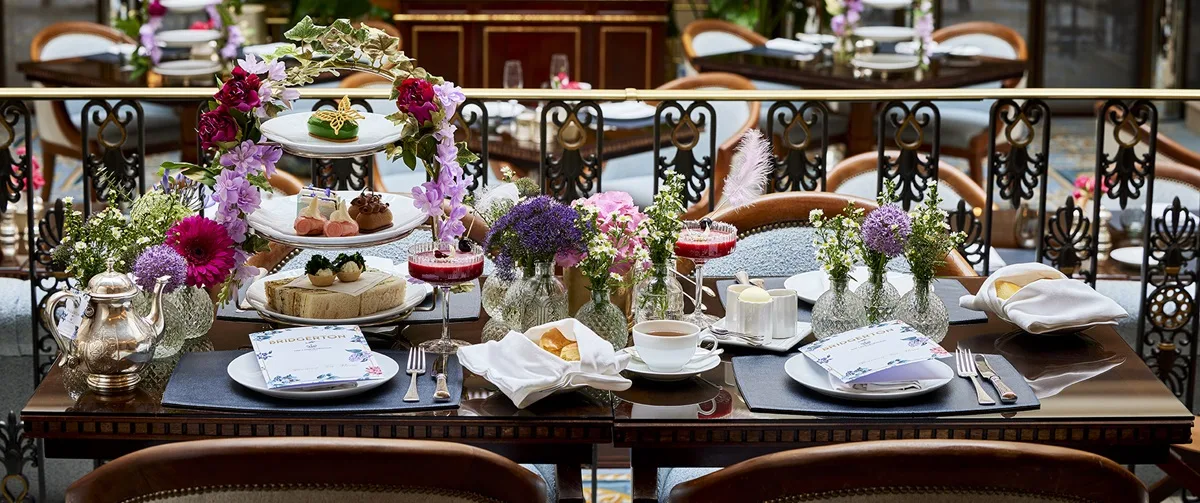

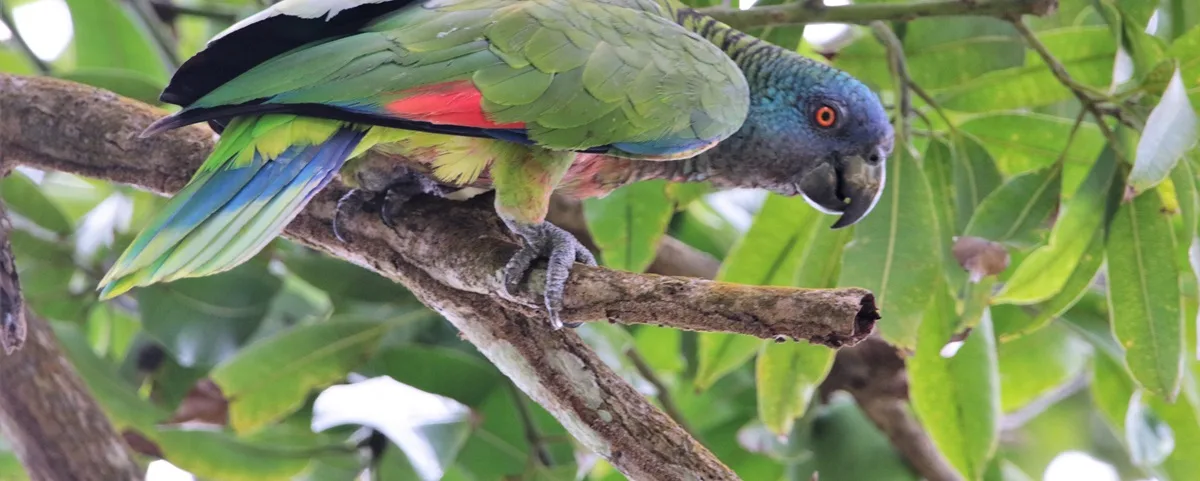
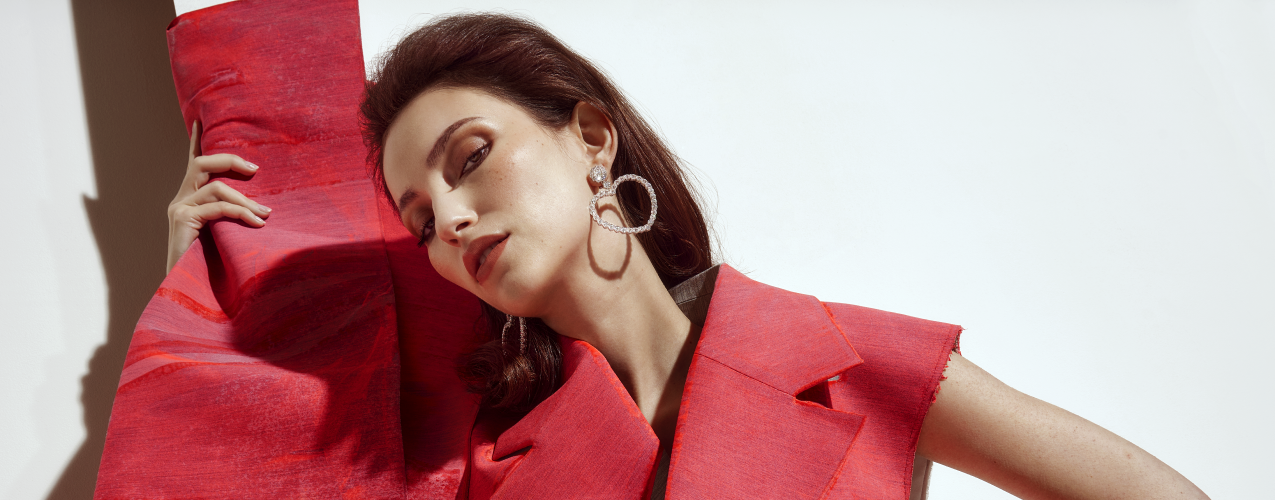



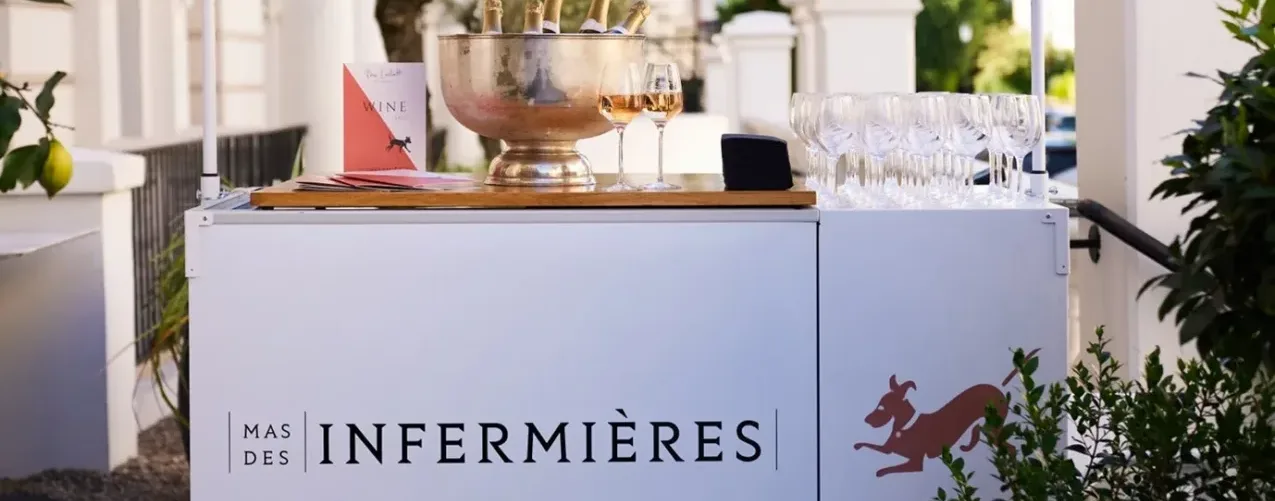

Show Comments +